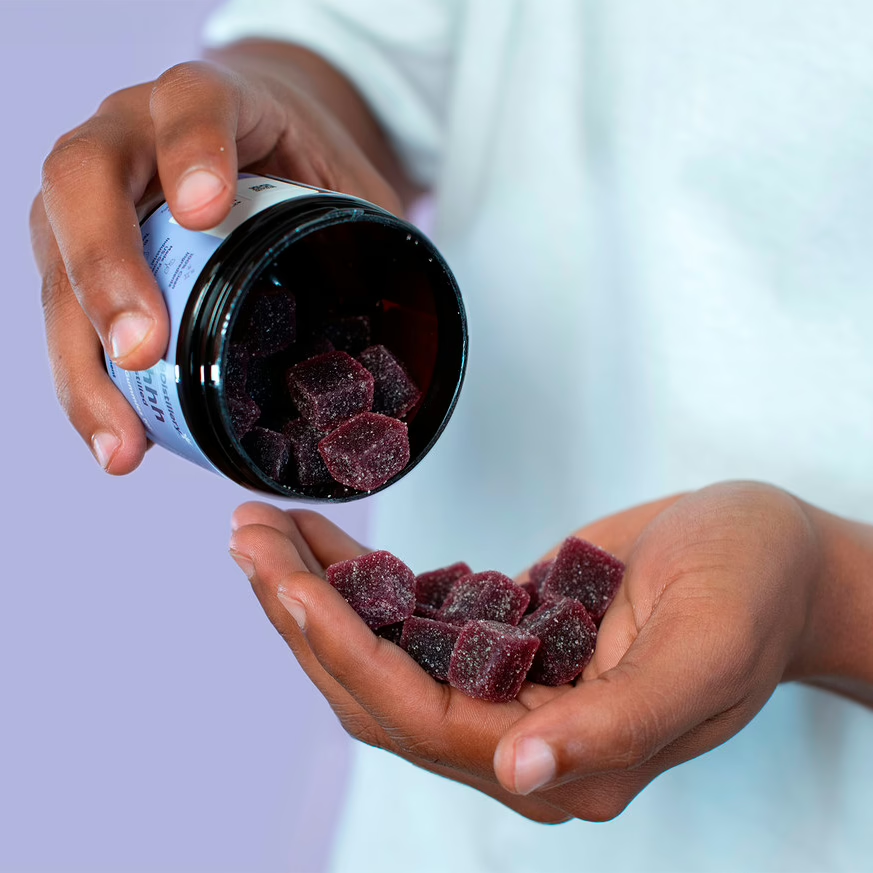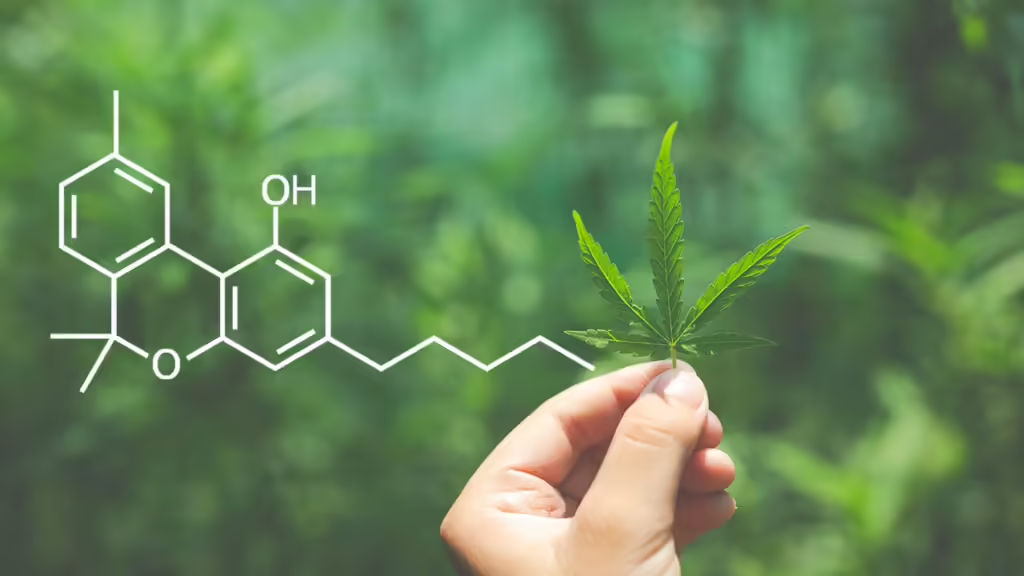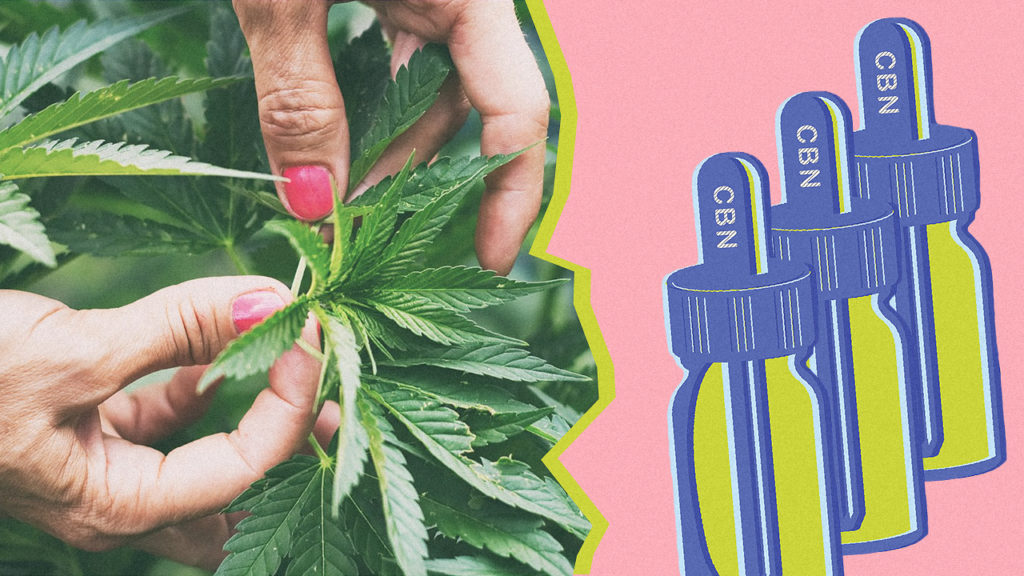Does CBN Make You Sleepy?
Summarize

When you are shopping for CBD products, you may have noticed the rising popularity of CBN by the variety of products containing this cannabinoid. CBN (cannabinol) is a cannabinoid found in the cannabis plant (hemp and marijuana), and some manufacturers are enhancing their products with additional amounts of it. You can find CBN oils, capsules, gummies, and isolates, all CBD products with added CBN. The limited research has shown promising signs that cannabinol may significantly improve sleep and promote relaxation, among other benefits.

TL;DR (Too Long; Didn’t Read):
CBN is formed naturally in the cannabis plant when THC degrades from exposure to UV light and heat. People take it for sleeping because they report CBN makes them feel drowsy and sleep better. There is minimal research on CBN, but it is believed to interact with the CB1 and CB2 receptors in the endocannabinoid system. Cannabinol may work synergistically with other cannabinoids and terpenes. Minimal research has found that this compound may positively affect the immune system and improve sleep. There are many CBD products available today that contain additional amounts of CBN.
Where Does CBN Come From?
The hemp plant has approximately 120 phytocannabinoid types, with the leaves containing high amounts of CBDA and THCA. These are the acidic variants of the two major cannabinoids, CBD and THC. As the hemp plant ages and is exposed to UV light, heat, and oxygen, THCA converts to CBNA, which transforms into CBN through decarboxylation.
In other words, aged hemp plants have higher amounts of CBN than younger plants. CBN will form naturally, but it can also be created in a lab by exposing younger cultivated hemp plants to UV light and other methods.
CBN is a minor cannabinoid and is found in a low concentration in cannabis leaves since its formation requires a transformation process. The older the plant, the higher the concentration of CBN.
How Does CBN Make You Feel?
The research on CBN is minimal, but it has shown CBN may have various effects.
Since CBN forms from THCA, CBN is considered mildly psychoactive. However, you would have to take large CBN doses every day to produce even a mild high. As a product of THC oxidation, it was believed CBN interacts with CB1 and CB2 receptors in the endocannabinoid system at a potency that is about 10 times lower than THC potency. Research has found that CBN may have a higher affinity for CB2 receptors than THC. That means CBN may support the immune system.
CBN has been identified as a potential analgesic cannabinoid. Studies have also shown CBN may be a potent antibacterial cannabinoid.
CBN is gaining a reputation for promoting relaxation and improving sleep quality. A study found that participants taking 20 mg of CBD for seven nights experienced fewer awakening disturbances, enhancing sleep quality. They did not experience daytime fatigue.
How does CBN help sleep? It may work synergistically with other cannabinoids, like CBD and THC. Most studies on consuming cannabinol for sleep improvement have involved using products with multiple cannabinoids.

A controlled study compared the effect on sleep when taking 15 mg of CBD with and without 15 mg of CBN versus 5 mg of melatonin. All the groups experienced improved sleep quality, but no significant product differences existed. Though pure CBN was not used, the study did indicate that an equal amount of CBD and CBN was as effective as melatonin for improving sleep. However, much more research on CBN is needed.
Does CBN Make You Sleepy?
Let’s find out if CBN makes you tired and sleepy. While many users report feeling relaxed and sleepy after consuming CBN, these effects could vary widely depending on factors like dosage, biology, and other cannabinoids or terpenes in the CBN product.
Some users may experience side effects such as drowsiness, grogginess, or even a mild high if large doses are taken.
Since CBN is often taken with other cannabinoids, like CBD, and additional ingredients like melatonin and terpenes, it is not always clear if it is the CBN itself that is causing these effects.
The best strategy is to start with a low-potency and high-quality product. This will allow you to gradually determine how CBN affects you and adjust the dose.
There is some research, though some of it is conflicting. Since CBN is a low-affinity partial agonist of the CB1 receptor, it could be CBN will cause sedation because THC does.
CBN Has High Potential
CBN may impact sleep and cause drowsiness. While many people report feeling relaxed and sleepy after consuming it, these effects could vary widely depending on factors like metabolism, potency and health condition.
Cannabinol may work synergistically with other cannabinoids, terpenes, and compounds in the cannabis plant to enhance sedative effects. This phenomenon, known as the “entourage effect,” suggests combining different cannabis compounds may produce a more pronounced effect than any single compound alone. For example, when combined with additional amounts of other cannabinoids like CBD, CBC and CBG, and natural terpenes, CBN’s sedative properties may become more apparent. The entourage effect is a key concept in understanding the potential benefits of CBN and other hemp products.
Sources
- Ferrer I. Analysis of Cannabis. In: Comprehensive Analytical Chemistry. 2020
https://www.sciencedirect.com/topics/chemistry/cannabinol - Zhang Q, Pan Y, et al. The progress of small molecules against cannabinoid 2 receptor (CB2R). Bioorganic Chemistry. 2024
https://www.sciencedirect.com/topics/pharmacology-toxicology-and-pharmaceutical-science/cannabinol - Patil AS, Mahajan UB, Agrawal YO, Patil KR, Patil CR, Ojha S, Sharma C, Goyal SN. Plant-derived natural therapeutics targeting cannabinoid receptors in metabolic syndrome and its complications: A review. Biomed Pharmacother. 2020;110:110889. doi:10.1016/j.biopha.2020.110889.
https://www.sciencedirect.com/science/article/pii/S0753332220310817 - Walsh KB, McKinney AE, Holmes AE. Minor Cannabinoids: Biosynthesis, Molecular Pharmacology and Potential Therapeutic Uses. Front Pharmacol. 2021 Nov 29;12:777804
https://pmc.ncbi.nlm.nih.gov/articles/PMC8669157/ - Appendino G, Gibbons S, Giana A, Pagani A, Grassi G, Stavri M, Smith E, Rahman MM. Antibacterial cannabinoids from Cannabis sativa: a structure-activity study. J Nat Prod. 2008 Aug;71(8):1427-1430.
https://pubmed.ncbi.nlm.nih.gov/18681481/ - Bonn-Miller MO, Feldner MT, Bynion TM, Eglit GML, Brunstetter M, Kalaba M, Zvorsky I, Peters EN, Hennesy M. A double-blind, randomized, placebo-controlled study of the safety and effects of CBN with and without CBD on sleep quality. Exp Clin Psychopharmacol. 2024;32(3):277-284.
https://psycnet.apa.org/fulltext/2024-14146-001.html - Saleska JL, Bryant C, Kolobaric A, D’Adamo CR, Colwell CS, Loewy D. The safety and comparative effectiveness of non-psychoactive cannabinoid formulations for the improvement of sleep: A double-blinded, randomized controlled trial.
https://www.tandfonline.com/doi/full/10.1080/27697061.2023.2203221 - Corroon J. Cannabinol and Sleep: Separating Fact from Fiction. Cannabis Cannabinoid Res. 2021 Oct 13;6(5):366-371. doi:10.1089/can.2021.0006. PMCID: PMC8612407. PMID: 34468204.
https://pmc.ncbi.nlm.nih.gov/articles/PMC8612407/#s008
Share this post



0